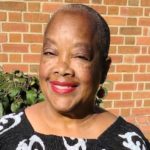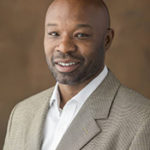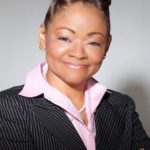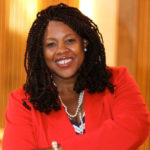
Seminary of the Southwest and the Black Religious Scholars Group (BRSG) are pleased to present:
Making It Plain: The Sacred Tradition and Civil Discourse of African American Biblical Interpretation
March 10, 2021
7pm CST
via Zoom Webinar
Click Here to watch a recording of the event
Please join us for this panel of current BRSG scholars, as they discuss this important perspective in biblical interpretation, moderated by Dr. Scott Bader-Saye, academic dean.
Panelists include:

Dr. Valerie Bridgeman is Dean and Vice President of Academic Affairs, as well as Associate Professor of Homiletics and Hebrew Bible at Methodist Theological School of Ohio. She also is founding president and CEO of WomanPreach! Inc. —the premiere non-profit organization that brings preachers to full prophetic voice. She has been in licensed or ordained ministry since 1977. Dr. Bridgeman is active in several professional guilds and has been inducted into the Society for the Study of Black Religion. She also sits on several boards, including the Samuel DeWitt Proctor Conference.
She served as general editor and consultant for the United Methodist Church’s Africana Worship project and has published several book chapters and articles. Her publications also include her roles as associate editor and author for The Africana Bible: Reading Israel’s Scriptures from Africa and the African Diaspora (2009), Norton’s Preaching with Sacred Fire: An Anthology of African American Sermons, 1750 to the Present (2010), and co-editor of Those Preaching Women: A Multi-Cultural Collection (2008). Her most recent work is a co-authored volume on Hosea for the Wisdom Commentary series, due out soon. She currently is working on a commentary on Job, also for the Wisdom Commentary series.
Dr. Bridgeman earned her Ph.D. in biblical studies (Hebrew Bible concentration) and secondary studies in ethics from Baylor University. She earned her Master of Divinity from Austin Theological Seminary in Austin, Texas and a Bachelor of Arts degree with a double major of Communication and Religion from Trinity University in San Antonio, Texas.
She is a peace activist and advocate for human rights, and was inducted into the 2010 class of Martin Luther King, Jr. Collegium of Scholars and Preachers at Morehouse College in Atlanta, GA.
 Herbert R. Marbury researches the Bible’s textuality—that is how biblical texts come to meaning both in the ancient world and in the contemporary worlds of modern U.S. communities. Although he turns to cultural studies, he grounds his work in both historical-critical and hermeneutical methods. In the ancient world, he focuses on Judah under Persian and Hellenistic imperial domination, which are the societies from which much of the literature of the Hebrew Bible emerged. In his first book, Imperial Dominion and Priestly Genius (Sopher Press, September, 2012) he focuses on Ezra-Nehemiah and asks, “What meaning(s) might Ezra-Nehemiah have held for elites in Persian Jerusalem?” He investigates the Second Temple community’s counter-narratives of resistance against imperial domination.
Herbert R. Marbury researches the Bible’s textuality—that is how biblical texts come to meaning both in the ancient world and in the contemporary worlds of modern U.S. communities. Although he turns to cultural studies, he grounds his work in both historical-critical and hermeneutical methods. In the ancient world, he focuses on Judah under Persian and Hellenistic imperial domination, which are the societies from which much of the literature of the Hebrew Bible emerged. In his first book, Imperial Dominion and Priestly Genius (Sopher Press, September, 2012) he focuses on Ezra-Nehemiah and asks, “What meaning(s) might Ezra-Nehemiah have held for elites in Persian Jerusalem?” He investigates the Second Temple community’s counter-narratives of resistance against imperial domination.
Since 2012 Marbury has served as co-chair of the African American Biblical Hermeneutics section of the Society of Biblical Literature. There, he raises the question of meaning for African American communities. In Pillars of Cloud and Fire: The Politics of Exodus in African American Biblical Interpretation (New York University Press, 2015), he uses cultural studies as a mode of inquiry and builds on the method developed in Imperial Dominion. Pillars of Cloud and Fire recovers trajectories of counter-history in examples of African American biblical interpretation heretofore unexamined by biblical scholars. Focusing on figures such as Absalom Jones, David Walker, Zora Neale Hurston, Frances E. W. Harper, Adam Clayton Powell, Martin Luther King, Jr., and Albert Cleage, Marbury asks, “What meaning(s) has the exodus story held for successive African American communities in the U.S. from the antebellum period through the era the Black Power Movement?”
 Dr. Mitzi J. Smith, J. Davison Philips Professor of New Testament, Columbia Theological Seminary, is an AME itinerant elder. She received a Ph.D. in Religion from Harvard University and M.Div. from Howard University School of Divinity. Smith authored The Literary Construction of the Other in the Acts of the Apostles (2011), Insights from African American Interpretation (2017), Womanist Sass and Talk Back: Social (In)Justice, Intersectionality, and Biblical Interpretation (2018); co-authored Toward Decentering the New Testament (2019); edited Teaching All Nations (2014) and I Found God in Me: A Womanist Biblical Hermeneutics Reader (2015); and co-edited Minoritized Women Reading Race and Ethnicity (2020). She writes for workingpreacher.org.
Dr. Mitzi J. Smith, J. Davison Philips Professor of New Testament, Columbia Theological Seminary, is an AME itinerant elder. She received a Ph.D. in Religion from Harvard University and M.Div. from Howard University School of Divinity. Smith authored The Literary Construction of the Other in the Acts of the Apostles (2011), Insights from African American Interpretation (2017), Womanist Sass and Talk Back: Social (In)Justice, Intersectionality, and Biblical Interpretation (2018); co-authored Toward Decentering the New Testament (2019); edited Teaching All Nations (2014) and I Found God in Me: A Womanist Biblical Hermeneutics Reader (2015); and co-edited Minoritized Women Reading Race and Ethnicity (2020). She writes for workingpreacher.org.
 The Rev. Yolanda Norton is the Crump Visiting Professor and Black Religious Scholars Group Scholar-in-Residence for the 2020-2021 academic year at Seminary of the Southwest. Norton will be the third visiting scholar as part of the five-year partnership between Southwest and BRSG.
The Rev. Yolanda Norton is the Crump Visiting Professor and Black Religious Scholars Group Scholar-in-Residence for the 2020-2021 academic year at Seminary of the Southwest. Norton will be the third visiting scholar as part of the five-year partnership between Southwest and BRSG.
Norton is a Ph.D. candidate in Hebrew Bible and Ancient Israel and Theology and Practice Fellow at Vanderbilt University. Her current research interests include womanist interpretation, narrative and literary criticism, and the Persian period. In particular, her work focuses on the books of Genesis and Ruth, and how each text treats foreign women, and considers the ways in which insider-outsider paradigms in Scripture influence constructions of identity and facilitate the vilification and/or oppression of women of color who encounter the biblical canon in the modern world.
Currently, Norton is Assistant Professor of Hebrew Bible and H. Eugene Farlough Chair of Black Church Studies at San Francisco Theological Seminary, a Visiting Instructor at Moravian Theological Seminary, and adjunct faculty at Wesley Theological Seminary. She is ordained in the Christian Church (Disciples of Christ) and has served in various ministerial capacities in the Washington, D.C. area and Nashville, TN.
Norton is also creator/curator of the notable Beyoncé Mass, which evolved out of a chapel service developed by students in Norton’s class “Beyoncé and the Hebrew Bible” at San Francisco Theological Seminary. The class explored female-centric interpretations of the Bible and how Scripture reflects Black female identity. Like the worship service, the class explored how Beyoncé’s personal life, career trajectory, music and public persona reflects aspects of Black women’s stories.


